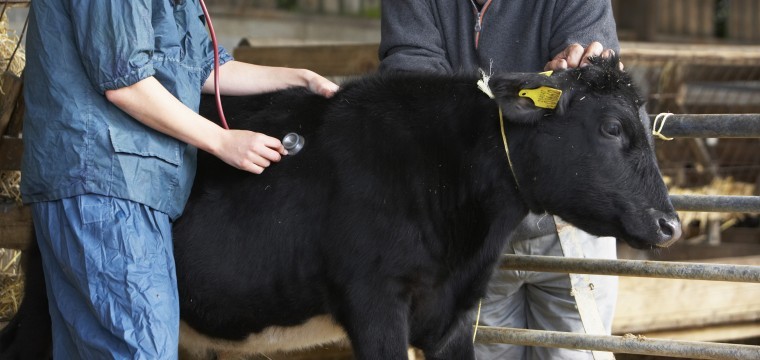Cedar Veterinary Group offered its farm animal business to the Endell Veterinary Group in Salisbury, Wiltshire, earlier this year for a number of reasons.
Charlie Mitchell, a director at Cedar, said staffing was the main reason the group decided to stop farm animal work. “It is very difficult to recruit experienced vets who are willing (and to a lesser extent capable) of providing the service we provide across all disciplines – small animal, equine and farm animal,” Mr Mitchell explained. “Most vets who have been qualified for a few years will choose to work in one of the above sectors.
“On top of this, there was the uncertainty about the TB tendering process along with the recent move to annual testing / pre movement testing in this area.”
Mr Mitchell added that the last 15 to 20 years had seen a decline in mixed practices with a move to larger dedicated farm animal veterinary practices. “For some time the traditional ‘mixed practice’ has not really existed anymore – certainly in the south of England anyway),” Mr Mitchell said. “We have resisted this change for some years.” Mixed practices had disappeared because of the loss of a number of farm businesses some years ago; bigger practices split to provide a large animal department; and bigger large animal practices started up and marketed themselves aggressively and brought smaller practices’ large animal work.
One farmer who has been affected by Cedar’s decision is Charlie Flindt who runs a mixed tenanted farm with his family at Hinton Ampner in Hampshire. Mr Flindt has expressed concerns about the possible lack of emergency cover for his livestock, especially the cattle, which form a small but significant part of the enterprise.
But Jim Willshire from Endell’s farm animal team said that Mr Flindt would have the same emergency cover provided by two vets who had moved to Cedar’s office in Alton, Hampshire. “We have a professional duty to ensure there is no gap in veterinary cover between them stopping on one day and us taking over the next,” Mr Willshire said.
He explained that Cedar was the only farm animal business which Endell had bought in the last ten years, although other purchases had been made in the group’s history. “We are not a large corporate trying to change the world and buy everyone up.”
Cedar was a traditional mixed practice where the vets would all do some farm animal, small animal and equine work. For the last 30 years, Endell has operated with independent departments, so there are 14 vets on the farm side, four in the small animal department and three doing equine work.
For some time now, Mr Willshire said, Endell had had a settled veterinary team and had not needed to recruit an experienced vet. “It is a very small industry on our side and if you were looking, you would usually know of someone and recruit by referral rather than by advertising.”
With the decline in livestock farms – especially in the dairy sector – the only option was for Endell to grow geographically and take on more farms. “We have built a model which allows us to do that.”




